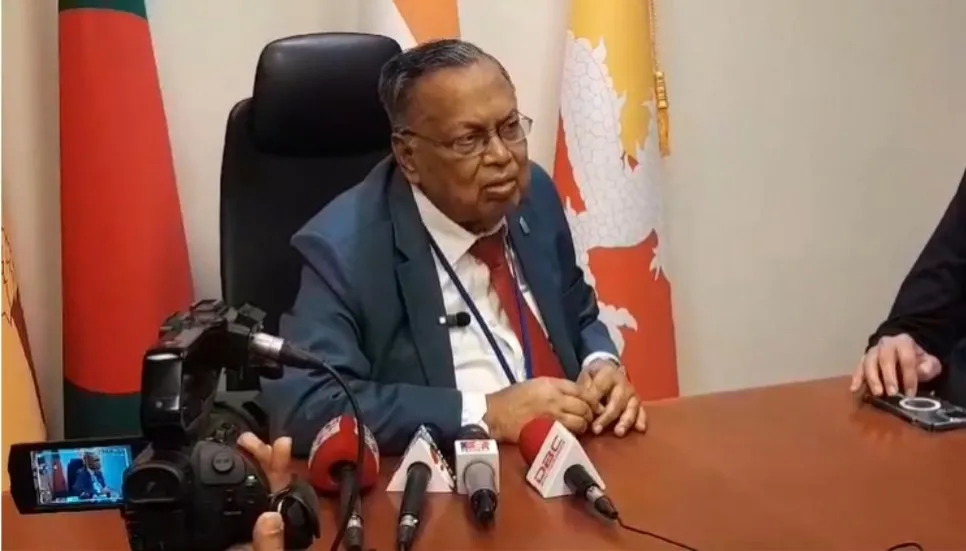
Finance Minister Abul Hassan Mahmood Ali said essential commodity prices have decreased in Bangladesh, but reining in inflation remains difficult due to widespread involvement of middlemen.
He made the remark to journalists on Wednesday, at the end of third day of the spring meetings of World Bank and International Monetary Fund (IMF) in Washington, DC.
These meetings are taking place from April 15 to April 20 in Washington, DC, and a 10-member delegation led by the finance minister is participating in the programme.
Mahmood pointed out, “The government has made preparations to keep inflation under control if unrest starts in the Middle East. Note that our development partners do not pay any attention to anti-nation propaganda.”
On Tuesday, global lender IMF estimated the inflation rate at 9.3 per cent for Bangladesh in the current FY. The IMF growth forecast highlighted various global and local challenges, including high inflation, unemployment, lower remittance flow, and a falling industrial investment target.
Besides, at a press briefing on the transcript of the Fiscal Monitor for April 2024 on Wednesday, Director of the Fiscal Affairs Department at the IMF Vitor Gaspar said, “Moderate fiscal tightening is expected to resume this year, but significant uncertainty remains.”
“In 2024, a record number of countries, with more than half of the world’s population, will hold elections. Evidence shows that in election years, realised deficits were 0.4 percentage points of GDP higher than budgeted.”
Gaspar added, “Looking ahead, global public debt is projected to approach 100 per cent of GDP by the end of the decade. This rise in global public debt is primarily driven by China and the United States, where public debt is now higher and is expected to grow faster than pre-pandemic projections.
“Loose fiscal policy in the United States exerts upward pressure on global interest rates and the dollar. It pushes up funding costs in the rest of the world, thereby exacerbating existing fragilities and risks.”
On the day at another event, the World Bank Group and African Development Bank Group are partnering on an ambitious effort to provide at least 300 million people in Africa with electricity access by 2030.
The World Bank Group will work to connect 250 million people to electricity through distributed renewable energy systems, or the distribution grid, while the African Development Bank Group will support an additional 50 million people.
Access to electricity is a fundamental human right and is foundational to any successful development effort.
Currently, 600 million Africans lack access to electricity, creating significant barriers to health care, education, productivity, digital inclusivity, and ultimately job creation.
World Bank Group President Ajay Banga, “Electricity access is the bedrock of all development. It is a critical ingredient for economic growth and essential for job creation at scale. Our aspirations will only be realized with partnership and ambition.
“We will need policy action from governments, financing from multilateral development banks, and private sector investment to see this through.”
This partnership is a demonstration of the determination of the World Bank Group and the African Development Bank Group to be bolder, bigger, and better at tackling one of the most pressing challenges in Africa.
The initiative is the most recent manifestation of the World Bank Group’s commitment to become more impact-oriented and is the byproduct of a concerted work plan to build a better bank.
It is aided by a constellation of regional energy programs that will now be aligned toward this common goal.